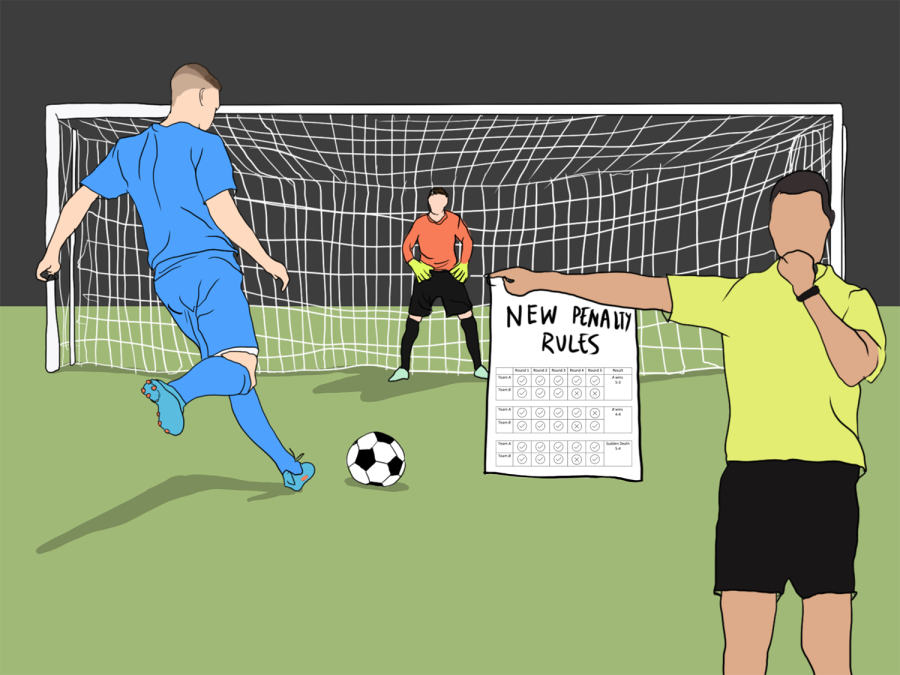First penalty kick wins soccer match, NYU prof finds
Researchers found that the first team to kick the ball at a penalty-kick shootout is more likely to win than the opposing team.
(Illustration by Aaliya Luthra)
February 28, 2023
The team that wins the coin toss to shoot first during a penalty-kick shootout is 22% more likely to win the game than the opposing team, according to the results of an analysis conducted by NYU professor Steven Brams. His research team also proposed new rules to ensure fairness across soccer matches.
Brams said that although each team has an equal chance of winning the coin toss, the system is unfair because the team that kicks first is most likely to win the game, meaning that the match is partly decided by luck. As an example, he referenced the most recent FIFA World Cup final in which Argentina beat France after starting the penalty-kick shootout.
“The team that kicks second almost always loses,” Brams said. “That was true in the final game between Argentina and France. Argentina won the coin toss, [Lionel] Messi kicked first and then they went on to win. That’s not a coincidence — that usually happens.”
FIFA temporarily implemented one of the researchers’ proposed changes, called the catch-up rule, which allowed teams that had failed to score in a given round to shoot first in the following round. The organization later dropped the changes, saying that they were difficult to implement and confused fans.
Brams said the team that wins the coin toss usually decides to kick first because it puts psychological pressure on the second team to not miss the shot.
“Especially if the team that kicks first is successful, there’s pressure on the second team to make the goal on that round,” Brams said. “It’s been shown that the team that gets second has almost a three-to-two disadvantage.”
The research team — which included King’s College professor Mehmet Ismail and Wilfrid Laurier University professor Marc Kilgour — has proposed a new, fairer system called the “m-n rule” based on their findings. Within one round, the first kicking team would need to make five goals to win, and the second kicking team would only need to make four goals to win. If both teams reached five and four goals respectively, the shootout would go to sudden death, meaning the next team to score a goal would win the game.
The research team calculated that implementing the rule would equalize the possibility of each team winning the shootout. The authors plan to present these findings at conferences, and possibly to FIFA itself, though they are skeptical that the organization will implement their proposed changes.
Contact Ujji Bathla at [email protected].
























































































































































